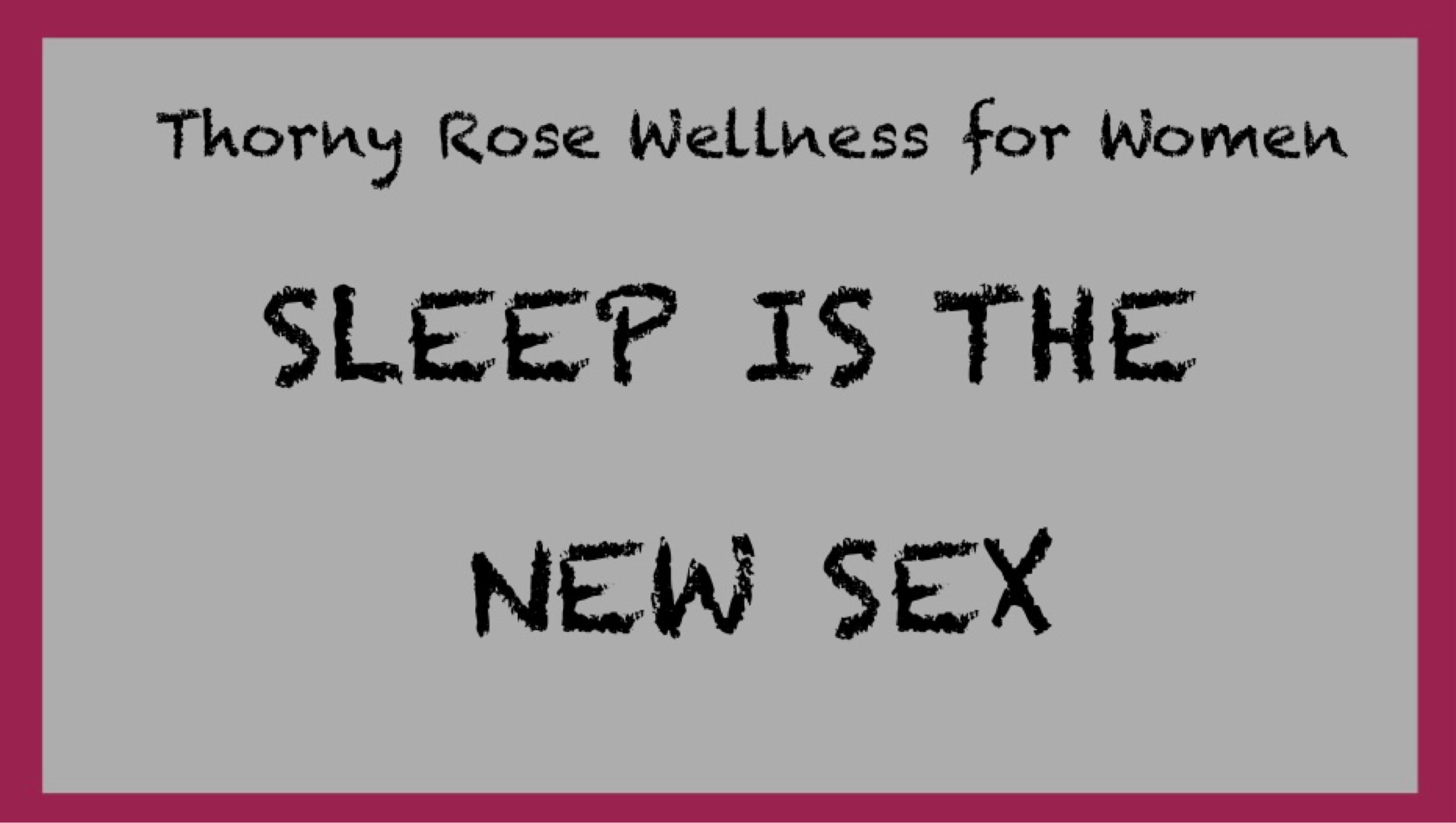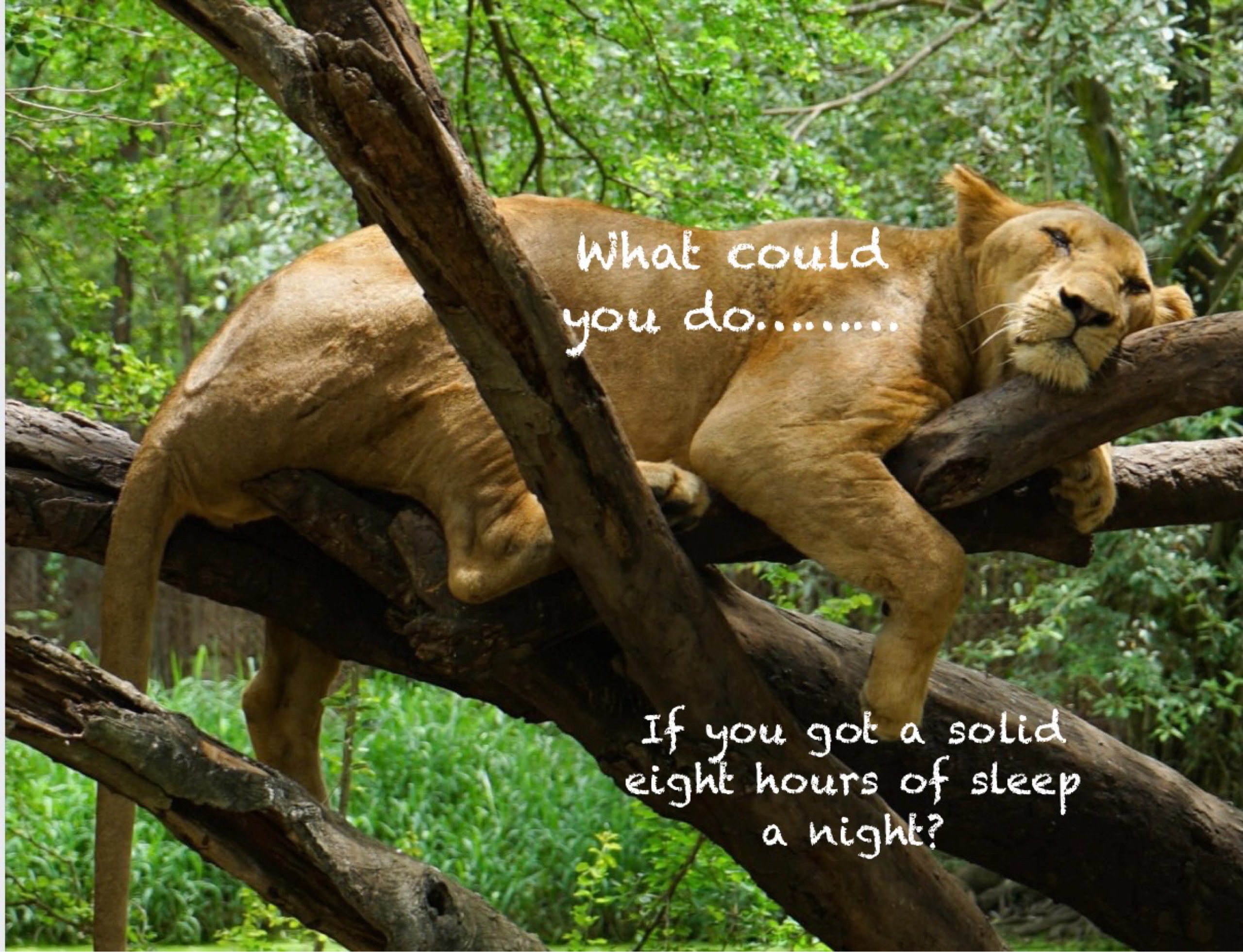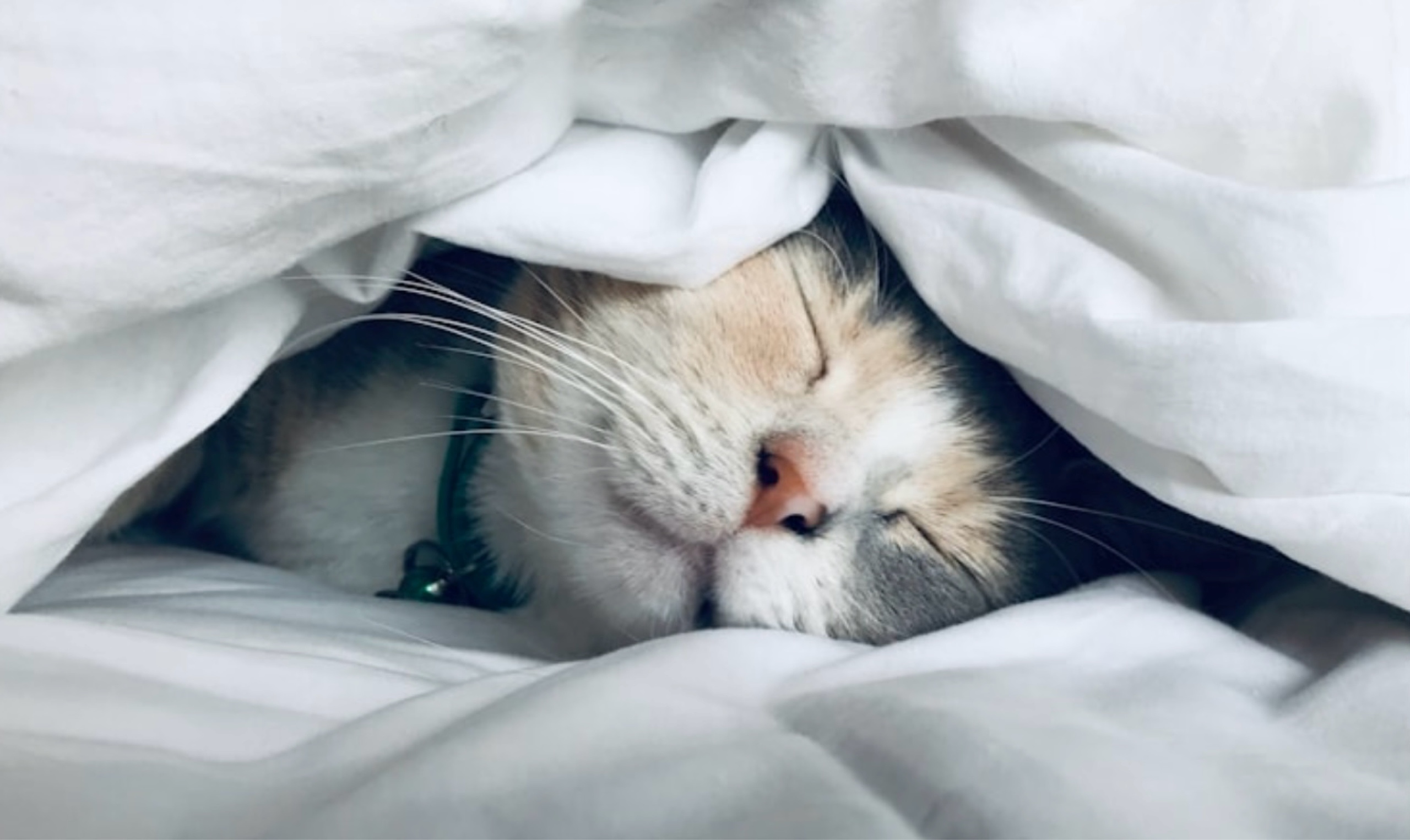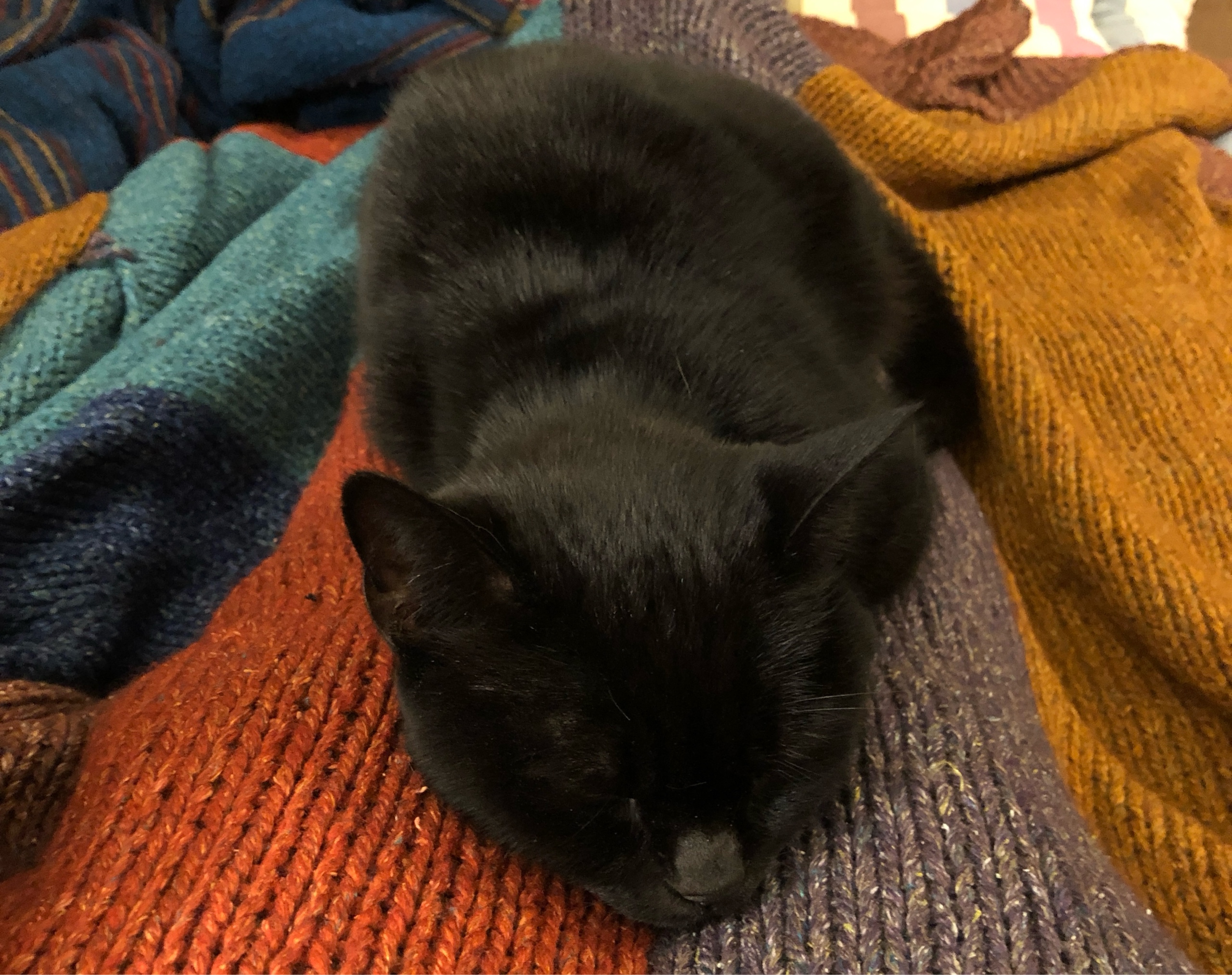Sleep is the New Sex.....


[9 minute read]
Have you heard? Sleep is the new sex, they say. Bright young things boast about how much they are getting, delectable details of delicious naps are dished, and early nights are in. Getting enough sleep is the new preoccupation and there’s a new aspiration to be “sleep rich.” Actually, I just made up that last phrase, but I think it could be a thing. Sleep abundant. What a crazy world we live in when ordinary people living ordinary lives don’t get enough of one of the most crucial cornerstones of life and health.
So, are you getting as much as you want, of either?
The sex part? That’s probably another course, but sleep is something we can look at here.
Not sleeping well is the pits. Struggling through the day like a zombie is demoralising and challenging and everything looks worse when we are tired.
Dire warnings of how bad it is to have too little sleep don’t help either. Of course, there are people who could sleep, but don’t, and maybe looking at the harm caused by lack of sleep might encourage them to get to bed a bit earlier, but for most people reading this, it’s likely to be difficulty falling asleep and staying asleep that causes the issues.
It’s very easy to get locked into a cycle of poor sleep, and to panic about the lack of sleep we are getting. There can’t be many people who have never stared miserably at the clock all night before a big event, knowing that not sleeping is going to make a challenging day even more so, and not feeling they can do anything about it. It’s one thing to “pull an all-nighter” to meet a deadline, or because you are having too much fun to sleep, but when it’s the night before a big presentation, or a race? Or the fourth night in a row? It just sucks.
It’s unclear whether insomnia is getting worse in the general population, or if we are more aware of it now. Certainly, the 24 hour culture and the blurring of work/home boundaries can’t be helping. Having access to electronic devices can keep us “switched on” later and later and the complexity of our lifestyles has probably increased. It’s not that people didn’t work hard in the past, but for many people (not all, it’s never been easy to be a single mother, for instance) there wasn’t so much juggling. Schools didn’t expect so much of parents, there weren’t so many after school clubs and activities, work didn’t expect so much of employees, and we weren’t expected to do so much. It was in some ways simpler. Ah, rose tinted glasses for “the good old days”.
Whether it’s getting worse or not, it’s clear that many people are not sleeping as much or as well as they would like, and this means there are a lot of people not functioning at their best! It also means there aren’t enough well- rested people to take up the slack. If everyone is running on empty and just trying to get through the day, who has the energy to help out a friend in need?
Women face particular challenges throughout their lives when it comes to sleep. Uniquely female things like pregnancy and birth really don’t help, and some mothers are affected by their children’s sleep habits for many years. Most women hit perimenopause already depleted. It isn’t uncommon to have children late enough in life that women can go into perimenopause with young children or teenagers at home. Oh, the joys of hormonal children and hormonal mothers! But of course you don’t need to have had children to be tired, and you don’t need to be a professional woman (that is to say, a woman with a professional career) to be stressed and overworked. Women of all demographics and ages can find themselves staring down the barrel of sleepless nights, when they are already exhausted, and see no end in sight as they look ahead

I've used pictures of cats because they are such expert sleepers, and we would do well to model their skills.
Hormones can affect sleep throughout the monthly cycle. In the perimenopausal, it’s the hormonal fluctuations that can be especially tricky. As we move into menopause it’s the overall lack of quality estrogen that can be the issue. The estradiol produced by the ovaries is the most effective sort. A lack of it can affect the body's internal temperature regulation, leading to hot flushes and night sweats and also disrupting the natural sleep-wake cycle. Anxiety and resultant insomnia is a well known characteristic of of perimenopause and menopause, both in terms of getting to sleep and staying asleep. Decreased levels of neurotransmitters can also play a part in disrupting the sleep cycle and bringing about mood changes (it is this decrease in neurotransmitters that can mean anti-depressants are effective, even though menopause is not depression). Bone and joint pain, cramps, and an increased sensitivity to external factors (noise and light) also have an adverse effect on sleep. These problems can be effectively addressed, both through hormonal and non-hormonal approaches. Please see article “To HRT or not to HRT?”.
Sleep “hygiene” is often vaunted as a useful solution, but it probably isn’t enough. In some ways, we are designed to sleep in noisier environments. Having activity around us while we sleep means that other people are alert to potential danger and we can drift off knowing that we are safe. The attempt to try to make our sleep environment as quiet as possible makes us more sensitive to noise. Some people find white noise very helpful to drown out background noise, but if you sleep with a partner, they have to be up for this as well. The other thing for many mothers, of children of all ages, or at least of children still living at home, is that part of us is still on “duty” at all times, and we want to be able to hear if our children need us. Co-sleeping mothers don’t fall into such a deep sleep as those sleeping alone or with an adult (which is part of what makes it safe to do so), and many mothers feel they are never off-duty enough to fully relax.
It’s not going to hurt to reduce ambient light in your bedroom, turn off the electronics a good hour or so before bed, and establish a pleasant winding-down routine. The latter is a solid self-care sort of thing to do, but you may need to implement some other strategies as well. It’s also not going to be possible to eradicate all noise and distractions, and attempts to do so can actually create more stress.
Sleep is in some ways a skill, and we can get better at it, but we need to start from a good base. Reducing stress is key element, and we can’t sleep well in a pool of sweat. A mind racing with legitimate concerns is hard to switch off. Deep worry about the state of the world and fears around personal financial difficulties plague many. These are not easy times.
In terms of getting a better nights’ sleep, we need a multi pronged approach.
First off, getting to grips with any physical symptoms such as joint pain, night sweats, heart palpitations and the like must be a good starting point.
Reducing the number of stressors in our lives would surely help, too. We can’t fix the problems of the world alone, but we might be able to reduce some of our own problems with some imaginative thinking, especially if we have community to call on. Reducing our commitments and giving ourselves a bit more breathing space would be helpful.
Dealing with the stress that we do have via adaptogens, adequate magnesium (and other essential vitamins and minerals), breathing techniques, exercise, cold water exposure and meditation and hypnotherapy, are all valid options.
I’ve shared before about Non Sleep Deep Rest, but this is worth pursuing. Not only can it help you sleep better at night it can also replace some of the functions of restorative sleep, and thus offset some of the harm caused by not sleeping.
Adaptogens can make a huge difference. Seriously, if you haven't tried them yet, don't delay. Ashwagandha and Holy Basil are good ones to start with.
Utrogestan, a form of progesterone, produces metabolites that bind to GABA receptors and in many women make a profound improvement in their ability to go to sleep and stay asleep.
Exercising more and in good light earlier in the day and in fresh air are also helpful. A lot of getting a good night’s sleep is around having a consistent sleep wake cycle and getting early daylight is essential in differentiating day and night for our brains. See: Just One Thing - Early Morning Walk
Taking supplements such as lavender, valerian, chamomile and tart cherry juice have also been proven to help.
Obviously, avoiding stimulants like caffeine later in the day is advisable, and alcohol consumption can make things worse. It can help with the initial falling asleep, but often leads to sleep disturbances later in the night. This might not be what you want to hear, but alcohol may well be something best consumed very moderately if you are perimenopausal. More on that in ”Fancy another?”
How you talk to yourself about sleep really matters. The panic we can feel at not being able to sleep has to be turned around before sleep is a viable option. Sleep is physiologically at odds with a pounding heart and a racing mind. For reasons not completely clear to me, I personally went through some terrible sleeping times when the kids were a bit older and before I got into the perimenopause. I frequently found myself awake for hours, either before going to sleep or having woken up in the small hours. Of course I found it terribly stressful and it had a very negative effect on my life. I got more and more stressed about not being able to sleep and I could feel myself spiralling into a worse and worse situation. After a while, I found talking to myself really differently had a remarkable effect. “Oh, well done, you were really close to falling asleep then!”, or “oh, you’ve woken up. You might not have been asleep for long, but you were actually asleep for a bit, let’s do that again” started to change my feelings around it. When my mind was heading towards a worry-inducing thought I would steer it firmly away. The image I had in my mind was as though I were riding a horse very strongly past a turning they wanted to head down. You might imagine pulling someone firmly from the edge of something they are drawn to, but isn’t safe for them to get sucked into. You can’t tell yourself “don’t think about your money worries”, because the term “money worries” sucks you straight into thinking about them. But you can imagine yourself re-directing your thoughts to something else and the effort of visualising that might well be enough to avert the intrusive thought! It is hard to drag your mind away from a path it’s heading down, but it is possible.
Many people also find listening to an audible book both to go to sleep initially and to return to sleep if awake in the night helpful. The volume has to be low enough that you have to concentrate to hear, and you can set a sleep timer, so it doesn’t run all night. Alternatively to an audio book, consider sleep meditations. I don’t recommend finding them on You Tube, as the ads can be very loud and wake you up, but there are quite a few apps out there, and many people find them helpful.
The advice in this linked article is that if you haven’t fallen asleep within a certain length of time, you get up. The aim is to not reinforce sleeplessness.

Cats are often willing to work as sleep coaches and are a more cost-effective solution than hiring a sleep consultant.
But how are you supposed to know how much time has passed, especially if you have turned your clock to the wall so it doesn’t stress you out? You can’t exactly set an alarm! But if you set your audible book to stop after twenty minutes, and you have listened to every word within that time, then you know you haven’t drifted off. You choose something that isn’t narrated in too animated a fashion (David Tennant, I'm looking at you), and ideally something that you have heard before so it doesn’t matter that you will fall asleep and not necessarily know when that happened.
Some people find a Bluetooth headband of some description helpful so as not to disturb a partner, but that’s something else:
If you have a partner and aren’t co-sleeping with a baby/child, consider sleeping alone at least until better sleep is established. Your partner (if you have one) doesn’t have to be a heavy snorer to wake you up, and it is frustrating to have been just about to drop off and then be awoken by someone moving or coughing. You don’t need a spare room, a cotton sleeping roll somewhere dark and where people won’t be stepping over you might well be enough. Once you have more confidence in your ability to fall asleep and stay asleep, you can test it out in more challenging situations. It’s worth holding in your mind the possibility that you could become so good at sleeping that you could sleep through virtually anything!
It might be that you start of the night in your usual bed, but if you are experiencing disturbed sleep, consider moving, even if you were already sleeping alone. If overheating is part of the issue, moving somewhere else will give you the opportunity to cool down. You also get the chance to try again. You can also play your audible book and not disturb anyone. Just about every sleep expert agrees that if you aren’t asleep within a certain length of time, continuing to try is fruitless, and also risks reinforcing sleeplessness.
Alternatively to an audio book, consider sleep meditations. I don’t recommend finding them on You Tube, as the ads can be very loud and wake you up, but there are quite a lot of apps out there, and many people find them helpful.
Remember: It’s not the waking up that’s the problem it’s the not going back to sleep. Adults on average wake 8 times in the night, babies more like 16, but the wakefulness can be so brief that it’s hardly discernible and if you quickly return to restorative sleep, there’s no issue.
The main issue with not sleeping well at night is that most people don’t have the opportunity to sleep at other times. If you were up for a few hours in the night and got that crucial report done while there were no interruptions, and could then sleep until noon, the night time wakefulness wouldn’t be such a problem.
I expect the ease with which we can slip into a pattern of night waking probably serves a useful purpose in some situations. Certainly, if you have breeding livestock that are giving birth, being awake for a big chunk of the night is normal, and animals tend to prefer to birth at night, when it’s quieter.
Ditching early morning commitments can be a good move it it’s at all possible. Some of my clients at the studio won’t take a morning session, because they know that some of their best sleep happens between 5-10am. Legislation means that employers need to consider a request for working hours adaptations due to menopause. You could certainly explain why you would prefer meetings weren’t scheduled for the mornings.
Another great move is to ditch as many commitments as you, early morning or otherwise. The bigger the margins in your life the more space there is to rest and recover when needed, or - and here’s a subversive thought - wanted.
And oh, the irony that I stayed up late, staring at a screen, with a horribly early start the next morning, to write this article! But sometimes, needs must!